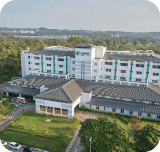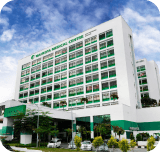In the News
HMI Medical launches Malaysia’s first Japanese robotic-assisted systems to improve access and tertiary care options for patients
The newest availability of Japanese robotic-assisted systems, hinotori™, enhances surgical precision, improves recovery outcomes and expands access to world-class care for patients.
25 September 2025
Share
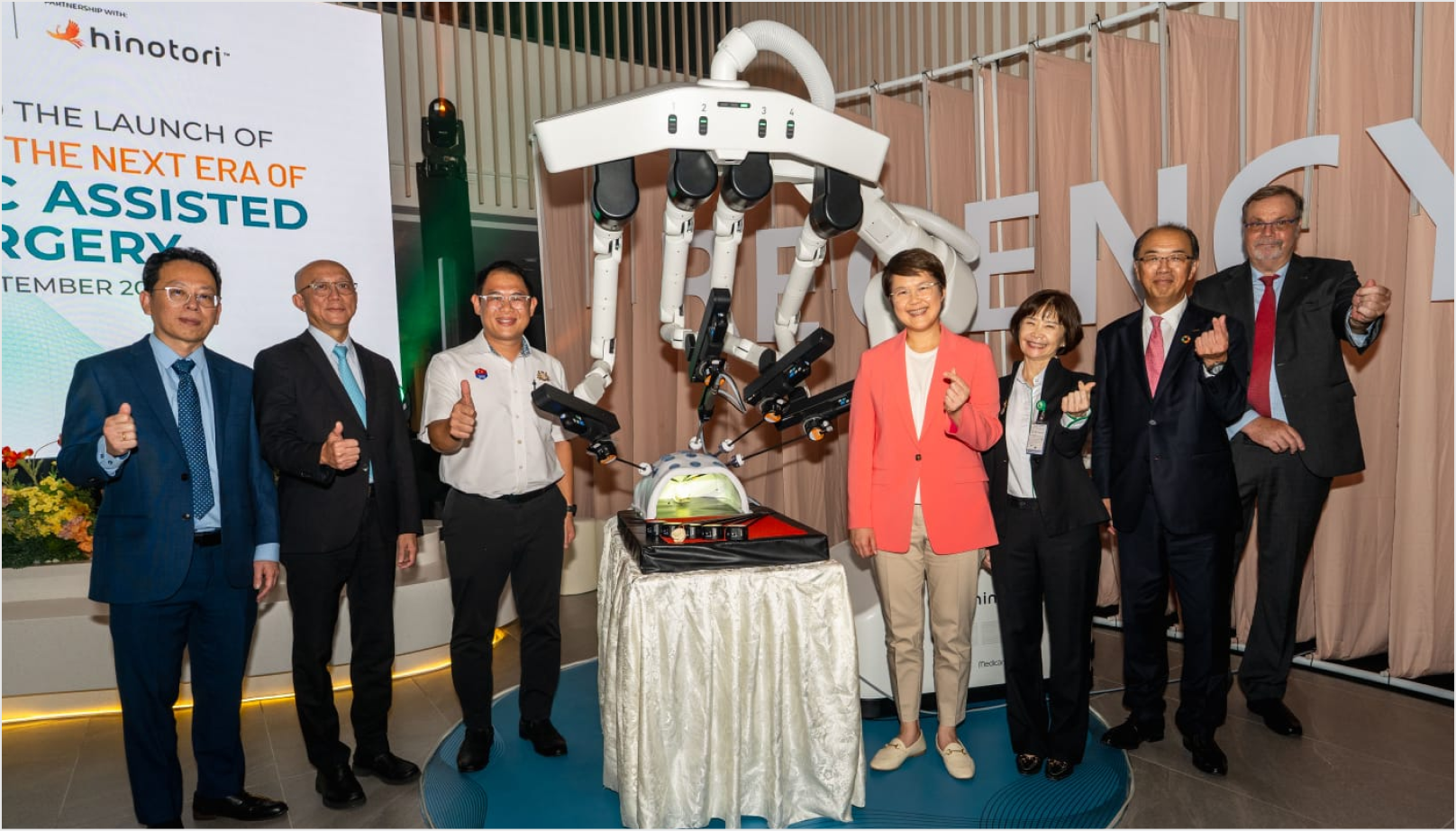
JOHOR/MELAKA, [22 AND 23 SEPTEMBER 2025] – HMI Medical has become the first private healthcare group in ASEAN to offer robotic assisted surgical procedures using hinotori™ at both its flagship hospitals – Mahkota Medical Centre (MMC) in Malacca and Regency Specialist Hospital (RSH) in Johor. Made possible by Kawasaki Heavy Industry‘s robot technology cultivated for over 50 years and Sysmex Corporation’s network and knowledge in the healthcare field, hinotori™ was developed as a robotic assisted surgery (RAS) system to reproduce a surgeon's sensitive movement, which is essential for surgeries.
Robotic-assisted surgery, a groundbreaking advancement in medical technology, has redefined the landscape of surgical procedures. With the availability of breakthrough technological innovations in medical technology, our surgeons are now able to perform complex procedures with enhanced precision, control, and visio,n which increases recovery time for patients. Using robotic arms and a high-definition 3D camera controlled from a console, this minimally invasive approach will offer greater dexterity and less invasiveness for patients with conditions related to urology, gynaecology, colorectal, and general surgery that qualify for a robotic-assisted surgical procedure.
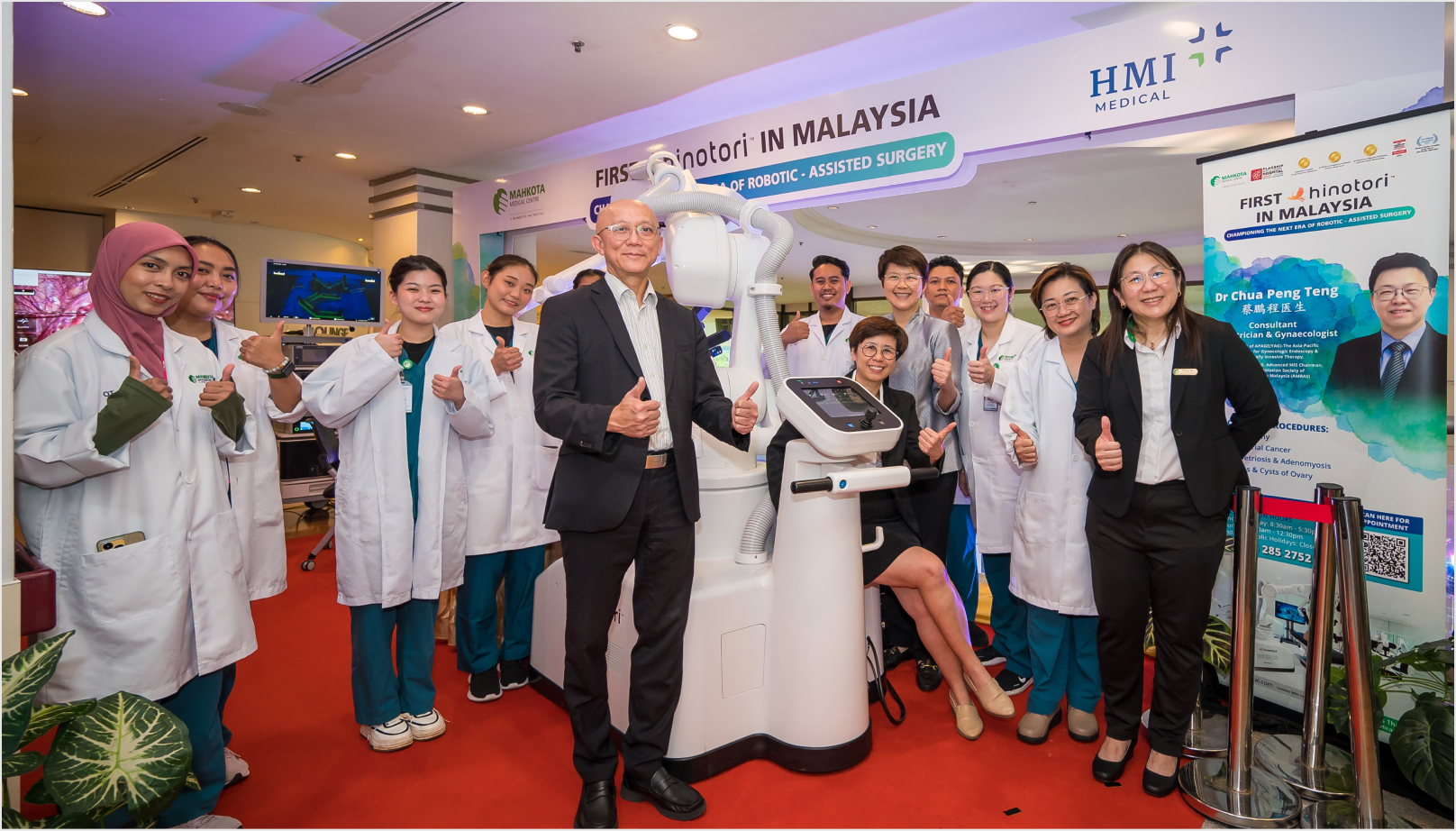
Already in use across 87 hospitals in Japan, and in Singapore General Hospital since 2024, hinotori™ is approved by the Pharmaceuticals and Medical Devices Agency (PMDA) in Japan, Singapore’s Health Sciences Authority (HSA), and Malaysia’s Medical Device Authority (MDA). With robotic-assisted surgeries, patients will also typically experience less post-operative pain, faster mobilisation, and reduced hospital costs over time. In addition to open and laparoscopic surgical techniques, surgeons at HMI Medical’s hospitals in Malaysia, MMC, and RSH are now able to offer the most cutting-edge surgical techniques with their patients and discuss clinical decision-making factors with them to assess their eligibility for RAS. With the availability of RAS by hinotori™ at both their hospitals, HMI Medical is setting new benchmarks in making advanced care available to patients across Malaysia and ASEAN.
Robotic-assisted surgery is well poised to continue shaping the future of healthcare, offering transformative possibilities to doctors and patients alike. By offering robotic-assisted surgeries introducing hinotori™ to at both of our two hospitals in Malaysia, we are able to increase the availability of the latest surgical procedures that bring quicker recovery, and better patient outcomes.
Chin Wei Jia
Group CEO of HMI Medical
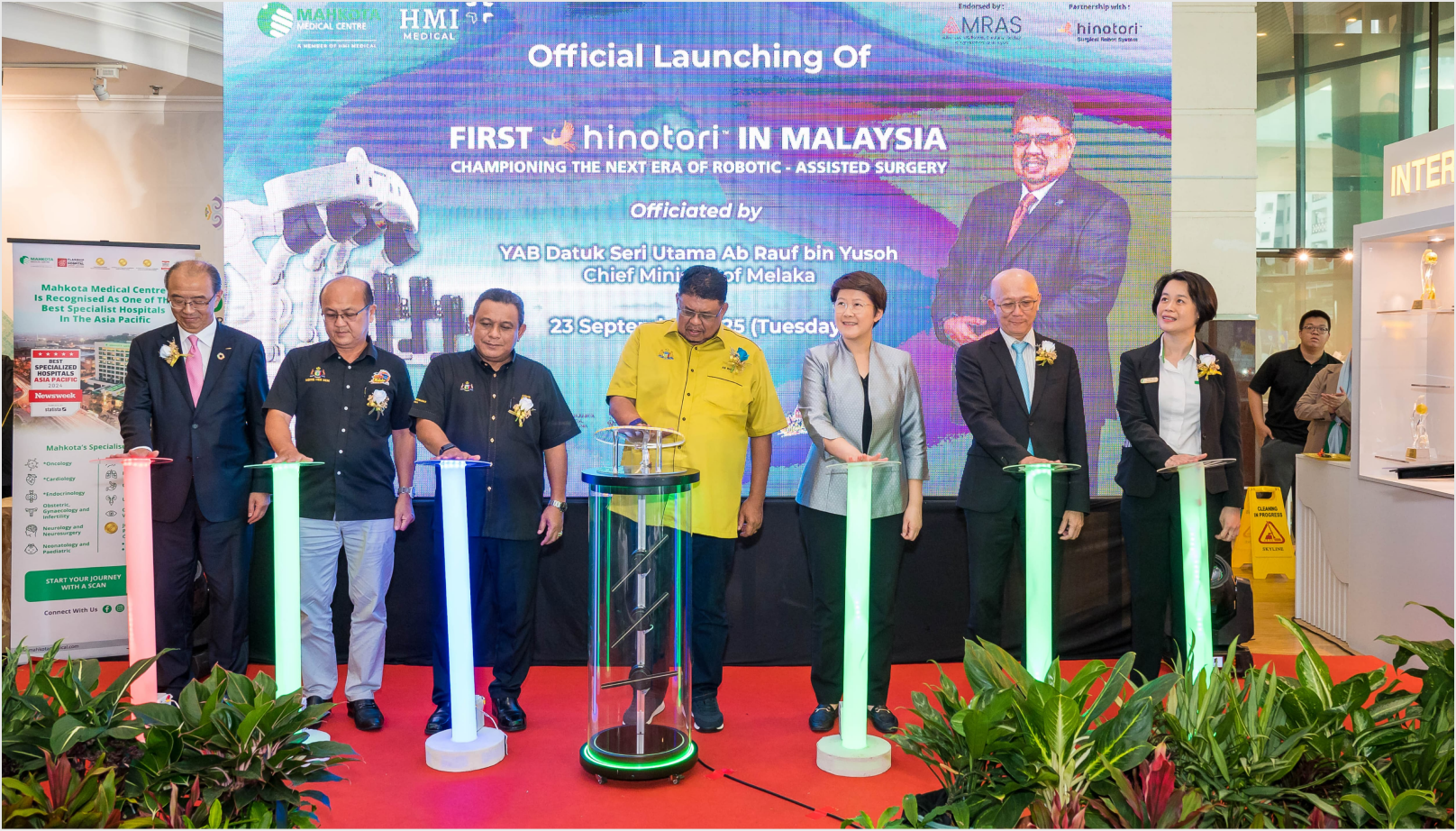
To mark this milestone, HMI hosted a two-day launch across both hospitals, bringing together government leaders, global innovators, and healthcare experts to discuss how RAS can shape Malaysia’s healthcare future and to showcase real-world case studies across specialties such as women’s health, general surgery, and colorectal care.
The Future of Surgical Procedures
Robotic-assisted surgery is one of the fastest-growing segments in medtech, with the Asia-Pacific surgical robotics market projected to almost double from USD 4.6 billion in 2018 to USD 8.49 billion by 2025. Rising chronic diseases, ageing populations, and demand for minimally invasive care are fueling the surge. HMI Medical is positioning itself as a healthcare disruptor by offering RAS as a cost-effective alternative to traditional open or laparoscopic surgery, while investing heavily in doctor upskilling to ensure more specialists across urology, gynaecology, colorectal, and general surgery are trained and certified to carry out robotic assisted surgical procedures.
Across the region, over 11,000 procedures have been performed to date with hinotori™. At MMC and RSH, they have completed a series of high-demand procedures across various specialties such as urology, gynaecology and general surgery. Early outcomes also show improvements in surgical precision, shorter hospital stays, and higher patient satisfaction – underscoring the real-world impact of robotic-assisted surgery in improving healthcare delivery. Over time, MMC and RSH aims to expand the use of RAS in more procedures for prostate, kidney, and women’s health conditions, underscoring the growing demand for RAS procedures among Malaysians.
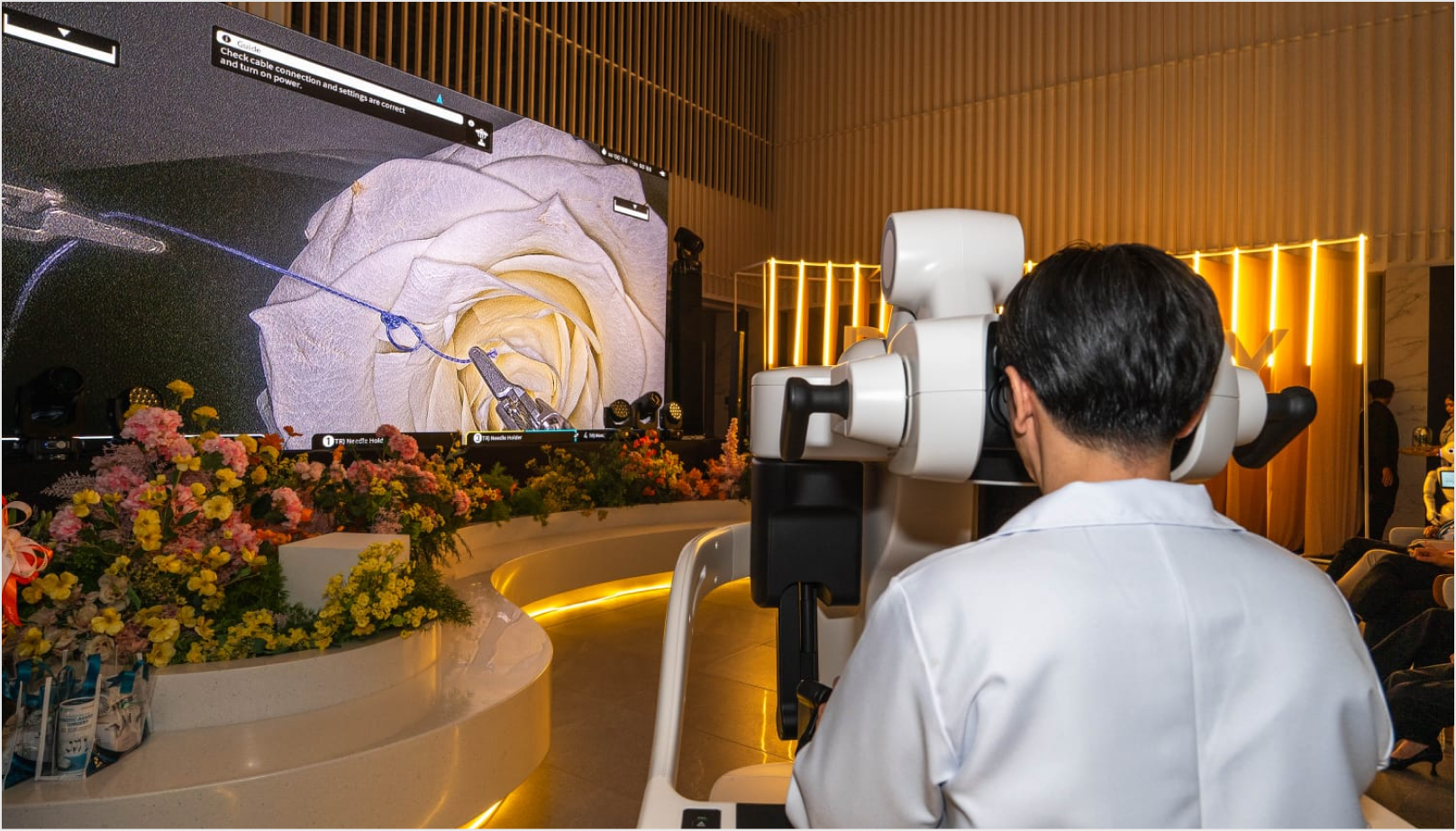
Elevating Regional Healthcare Standards
HMI’s hospitals now feature one of ASEAN’s first hinotori-trained surgical teams across urology, gynaecology, and general surgery. With growing demand for RAS in areas like prostate, kidney, and women’s health, the system is reshaping surgical outcomes and positioning Malaysia as a regional hub for advanced care.
Hinotori™ is a testament to Japan’s medical innovation, and we are proud to see it expand from Japan to Singapore, and now to Malaysia. We look forward to collaborating with leading hospitals across the region to share expertise and elevate surgical standards outside of Japan.
Genichi Murakami
Vice President of Medicaroid Corporation
This achievement also builds on HMI’s push for digital healthcare innovation, including MMC’s recent launch of Malaysia’s first Next-Gen Smart Ward, which integrates IoT devices and real-time monitoring to enhance in-ward patient care experiences. “By introducing hinotori™ into our hospitals, we are not only investing in technology but also in the future of healthcare for the ASEAN region,” Wei Jia added. “This milestone reflects our dedication to always providing value-based care to our patients by ensuring they have access to the latest technological advancements at our hospitals.”

